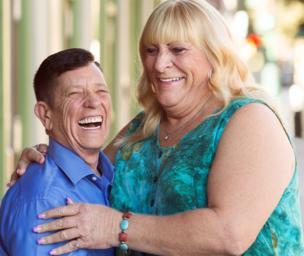Understanding Depression in the LGBTQ Community

According to the National Institute of Mental Health, individuals who identify as gay, lesbian, bisexual, transgender, and queer have a high prevalence of mood and anxiety disorders compared to their heterosexual counterparts. Studies have shown that the discrimination, prejudice, abuse, and violence faced by the LBGTQ community makes the individuals more vulnerable to depression and anxiety than heterosexual people. These biological and environmental factors lead to an increased risk of substance abuse and suicidal tendencies among this community, which has become a critical issue for the society.
Adolescents Who Identify as Lesbian, Gay, Bisexual, Transgender, or Queer
Adolescence can be a difficult life stage for many, especially for those who identify differently compared to heterosexual individuals. For those who do not identify as heterosexual, they commonly experience negative behaviors from their peers. The cultural stigma and the negative attitude towards such people can be seen in schools as well. A 2009 survey of over 7,000 middle and high school students who did not identify as heterosexual between the ages of 13 years old and 21 years old found that, because of their sexuality, 8 out of 10 people have been verbally harassed, 1 in 5 have been physically assaulted, 4 out of 10 have been physically harassed, and 6 out of 10 felt unsafe at school in the previous year.
Such kind of behaviors are not prevalent only at schools; this can also be seen in homes. Another study has found that young adults who experience high levels of parental rejection as adolescents are 3.4 times more likely to use illegal drugs, 3.4 times as likely to engage in unprotected sex, 5.9 times as likely to report high levels of depression, and 8.4 times more likely to have attempted suicide compared to their heterosexual counterparts.
Parents play a very vital role in improving the future of their children and when they find that their son or daughter is gay, their negative reaction and behavior make the life of their child more stressful.
Adults Who Identify as Lesbian, Gay, Bisexual, Transgender, or Queer
Adults who do not identify as heterosexual are more prone to the major depressive disorder than their heterosexual counterparts. This can be accounted by the fact that 12-month prevalence rates for MDD (major depressive disorder) among gay men were 10.3%, compared to 7.2% for heterosexual men, according to a 2001 study published in the American Journal of Epidemiology. According to another 21-year study published in the Archives of General Psychiatry, in 1999, lifetime prevalence rates of major depressive disorder among gay, lesbian, bisexual, transgender, and queer individuals were 71.4% compared to 38.2% among heterosexuals.
Why is Depression Prevalent Among Those Who Identify as Lesbian, Gay, Bisexual, Transgender, or Queer?
LGBTQ people suffering from depression often hide their feelings and emotions assuming that their grievances would not be listened or taken seriously by the society. They also feel uncomfortable coming out to their doctor and discussing issues related to their homosexuality. While the Gay and Lesbian Medical Association (GLMA) has already listed anxiety and depression among the top ten things that gay people need to discuss with their healthcare providers, people who do not identify as heterosexual rarely get the courage to talk with their doctors or even to their family members.
How to Help?
Parents must take their child's identity into consideration, as they have the power to impact their lives in a positive way, or a negative way.
In the case of any such incidence of mental or physical harassment, immediate action must be taken by parents by contacting the school or implementing anti-bullying and anti-harassment policies in society.



























